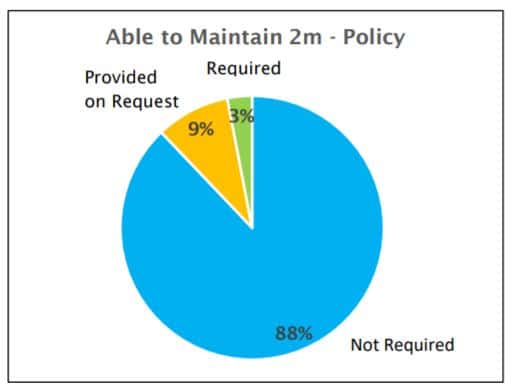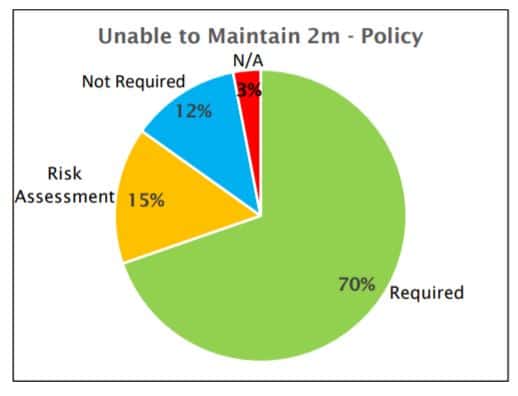In his statement today the Chancellor turned his attention to the next wave of support job retention in the UK economy, unveiling a new A Plan for Jobs 2020.
Key announcements likely to impact FIS Members:
Job Retention Bonus
The Chancellor confirmed that the Coronavirus Job Retention Scheme (CJRS) will wind down flexibly and gradually, supporting businesses until October. To further support people who have been furloughed in getting back to work the government is introducing a new Job Retention Bonus to reward and incentivise employers who keep on their furloughed employees.
Full detail to be announced, but the outline is that government will introduce a one-off payment of £1,000 to UK employers for every furloughed employee who remains continuously employed through to the end of January 2021.
Employees must earn above the Lower Earnings Limit (£520 per month) on average between the end of the Coronavirus Job Retention Scheme and the end of January 2021. Payments will be made from February 2021. Further detail about the scheme will be announced by the end of July.
Supporting Young People and Apprentices
High quality traineeships for young people – The government will provide an additional £111 million this year for traineeships in England, to fund high quality work placements and training for 16-24 year olds. This funding is enough to triple participation in traineeships. For the first time ever, the government will fund employers who provide trainees with work experience, at a rate of £1,000 per trainee. The government will improve provision and expand eligibility for traineeships to those with Level 3 qualifications and below, to ensure that more young people have access to high quality training.
Payments for employers who hire new apprentices – The government will introduce a new payment of £2,000 to employers in England for each new apprentice they hire aged under 25, and a £1,500 payment for each new apprentice they hire aged 25 and over, from 1st August 2020 to 31st January 2021. These payments will be in addition to the existing £1,000 payment the government already provides for new 16-18 year-old apprentices, and those aged under 25 with an Education, Health and Care Plan – where that applies.
High value courses for school and college leavers – The government will provide £101 million for the 2020-21 academic year to give all 18-19 year olds in England the opportunity to study targeted high value Level 2 and 3 courses when there are not employment opportunities available to them.
New funding for sector-based work academies – The government will provide an additional £17 million this year to triple the number of sector-based work academy placements in England in order to provide vocational training and guaranteed interviews for more people, helping them gain the skills needed for the jobs available in their local area.
Support targeted at the Construction Sector
The Chancellor recognised that the UK construction sector is vital for the recovery of the UK economy. The sector accounts for 7.6% of GDP and employs over 2.3 million workers spread across every UK region including over 900,000 self-employed workers.
The Chancellor reconfirmed the commitments made by the Prime Minister in his Build Build Build Speech on the 30th June.
Construction Talent Retention Scheme – The government is funding a Construction Talent Retention Scheme to support the redeployment of workers at risk of redundancy. This will help retain construction skills and match talented workers to opportunities across the UK.
Courts sustainability – The government will invest £40 million to improve the environmental sustainability of the courts and tribunals estate in England and Wales, investing in initiatives to reduce energy and water usage.
NHS maintenance and A&E capacity – The government will provide £1.05 billion in 2020-21 to invest in NHS critical maintenance and A&E capacity across England.
Modernising the NHS mental health estate – The government will provide up to £250 million in 2020-21 to make progress on replacing outdated mental health dormitories with 1,300 single bedrooms across 25 mental health providers in England.
Health Infrastructure Plan – The government will provide a further £200 million for the Health Infrastructure Plan39 to accelerate a number of the 40 new hospital building projects across England.
Further Education (FE) estate funding – Building on the £1.5 billion commitment for FE capital funding made at Budget 2020, the government will bring forward £200 million to 2020-21 to support colleges to carry out urgent and essential maintenance projects. This will be the first step in the government’s commitment to bring the facilities of colleges everywhere in England up to a good level.
School estate funding – The government will provide additional funding of £560 million for schools in England to improve the condition of their buildings and estates in 2020-21. This is on top of the £1.4 billion already invested in school maintenance this year.40
School rebuilding programme – The government has announced over £1 billion to fund the first 50 projects of a new, ten-year school rebuilding programme in England. These projects will be confirmed in the autumn, and further detail on future waves will be confirmed at the Comprehensive Spending Review. Construction on the first sites will begin in September 2021.
Court modernisation – The government will invest £102 million to modernise the court estate in England and Wales. This will include £55 million for essential court maintenance, £37 million for technology to fast-track the digitalisation of the courts, and £10 million for local regeneration projects outside London and the South East which will support employment and economic growth.
Prison and probation estate funding – The government will invest £143 million to improve the prison and probation estate in England and Wales. This will include £20 million to accelerate the digitalisation of prisons, £60 million for 1,000 temporary prison units to expand the capacity of the estate, and £63 million in additional maintenance.
Local infrastructure projects – The government will provide £900 million for shovel-ready projects in England in 2020-21 and 2021-22 to drive local growth and jobs. This could include the development and regeneration of key local sites, investment to improve transport and digital connectivity, and innovation and technology centres. Funding will be provided to Mayoral Combined Authorities and Local Enterprise Partnerships.
Towns Fund capital acceleration – The government will accelerate £96 million of investment in town centres and high streets through the Towns Fund this year. This will provide up to 101 towns across England with funding for projects such as improvements to parks, high streets, and transport.
Local road maintenance – The government will invest £100 million to deliver 29 local road maintenance upgrades across England in 2020-21, including eight bridge and viaduct repairs and improving local roads. This is in addition to the government’s plans to spend £1.5 billion in 2020-21 on filling potholes, resurfacing roads and improving local highway infrastructure.
Unblocking Manchester’s railways – The government will provide £10 million to develop plans for improving the reliability and capacity of the Manchester rail network.
World-class laboratories – The government will provide a £300 million investment in 2020-21 to boost equipment and infrastructure across universities and institutes across the UK.
Support targeted at the Housing Sector
The housing market has been severely affected by the pandemic, with activity and construction both slowing sharply. Estimates suggest that UK residential transactions in May 2020 were nearly 50% lower than in May 2019. According to Nationwide, UK house prices fell in the year to June 2020 for the first time in almost 8 years.
To address this the Chancellor has announced two key measures:
Temporary Stamp Duty Land Tax (SDLT) cut – The government will temporarily increase the Nil Rate Band of Residential SDLT, in England and Northern Ireland, from £125,000 to £500,000. This will apply from 8 July 2020 until 31 March 2021 and cut the tax due for everyone who would have paid SDLT. Nearly nine out of ten people getting on or moving up the property ladder will pay no SDLT at all.
Green Homes Grant – The government will introduce a £2 billion Green Homes Grant, providing at least £2 for every £1 homeowners and landlords spend to make their homes more energy efficient, up to £5,000 per household. For those on the lowest incomes, the scheme will fully fund energy efficiency measures of up to £10,000 per household. In total this could support over 100,000 green jobs and help strengthen a supply chain that will be vital for meeting our target of net zero greenhouse gas emissions by 2050. The scheme aims to upgrade over 600,000 homes across England, saving households hundreds of pounds per year on their energy bills.
Social Housing Decarbonisation Fund – The government will establish a new Social Housing Decarbonisation Fund to help social landlords improve the least energy-efficient social rented homes, starting with a £50 million demonstrator project in 2020-21 to decarbonise social housing. This will mean warmer homes and lower annual energy bills for some of the lowest income households.
Affordable Homes Programme – The government has confirmed that the £12.2 billion Affordable Homes Programme announced at Budget will support up to 180,000 new affordable homes for ownership and rent in England. The £12.2 billion will be spent over five years, with the majority of homes built by 2025-26 and the rest by 2028-29. The Affordable Homes Programme will also include a 1,500 unit pilot of First Homes.
Short-Term Home Building Fund extension – The government will support small- and medium-sized housebuilders that are unable to access private finance by boosting the Short-Term Home Building Fund, providing an additional £450 million in development finance to smaller firms. This is expected to support around 7,200 new homes in England, boosting housing supply and adding resilience to the market. A proportion of this fund will be reserved for firms using innovative approaches to housebuilding such as ‘Modern Methods of Construction’.
Brownfield Housing Fund – The government will allocate a £400 million Brownfield Housing Fund to seven Mayoral Combined Authorities to bring forward land for development and unlock 24,000 homes in England. To allow authorities to begin delivering projects quickly, 90% of the fund will be allocated immediately on a per capita basis, with 10% to be allocated through a competitive process.
Planning reform – The government will introduce new legislation in summer 2020 to make it easier to build better homes in the places people want to live. New regulations will make it easier to convert buildings for different uses, including housing, without the need for planning permission. In July 2020, the government will launch a policy paper setting out its plan for comprehensive reforms of England’s planning system to better support the economy and release more land for housing in areas that need it most.
Other Announcements
The Plan also includes a number of announcements designed to stimulate the Hospitality sector through VAT cuts and a Eat Out to Help Out voucher scheme. There is also a range of new funding to support return to work, funded work experience and employ ability training/coaching through the Department of Work and Pensions and the National Careers Service, alongside further support for apprenticeships, which enable people to work while training.
The Policy Paper A Plan for Jobs 2020 with full details and supporting data can be viewed here
A Plan for Jobs 2020 speech as delivered by Chancellor Rishi Sunak









